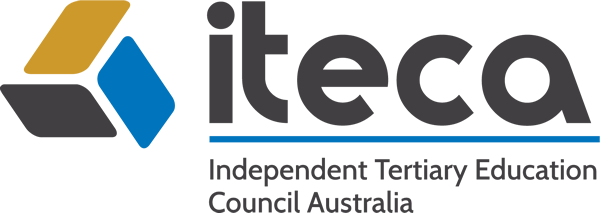The pandemic has given us an opportunity to think about what it means to be effective leaders and in particular what it means to be a relational or ethical leader.
Early childhood practitioners generally see crisis as a problematic state, but let’s not lose sight of the learning opportunities that a crisis creates. Now, that we’re hopefully out the other side, it’s a chance to reimagine our approach to leadership through a relational lens – which is a values-based approach to the things that we do.
I would like to invite people to think about 2021 as a relational, regrouping, re-connection year, learning from the things we experienced in 2020.
Being in Early Childhood Education means managing relationships
To begin with, I think it’s worth thinking about what your relationship ecology is – not only do you have a relationship with families, children, educators and human beings, you also have non-human relationships such as outside spaces, the animal world if you have animals, governance practices, governments, or the early years learning framework. As a leader, you are managing all of these relationships and that creates complexity.
I want to suggest that we need a more sophisticated view of the relationships we manage because not only are there a myriad of them with often multiple players, multiple components, complex ideas, value systems and beliefs that lie behind the surface, they also shift and change over time.
Therefore, having a relational lens or ethical approach to how we undertake relationships is essential in our profession.
We need to be clear that in the leading work that we do, we will need to navigate relationships. There will be times when your skill sets will be really stretched managing all of these areas, so having a view on where your relational strengths lie is very useful – for example, you may love dealing with the children, but you find the family relationship complex.
What do we mean by ethical leadership?
Ethical leadership is the process of influencing people and systems through principles, values and beliefs, that embrace what we define as the ‘right behaviour’. People want to be treated well and in a way that is respectful. A principled, value-orientated leadership approach helps you clarify what the ‘right’ behaviour is.
We often think about what the right decision is or what is the right way to be. However, rather than being a choice between good and evil, it’s about choosing between something that is good and something that is potentially better.
For example, is it good to tell families everything that has been going on or is it better to use your discretion about what level of detail you do communicate about their child? If a parent has said they don’t want their (male) child dressed up in a tutu, and they do, should you disclose that, or should you keep that information to yourself. How much do you share?
Ethical leadership is about doing the right thing according to your core values or principles, where it’s not necessarily easy or popular. There is a set of principles in the Australian Early Childhood Code of Ethics but you can generate your own. Once you identify your core values, you can start to set the tone with your team and organisations and communicate and communicate again. And remember, actions speak louder than words, so it’s what you do that is important.
Static and dynamic decision making
Differentiating between static and dynamic decision making goes to the heart of ethical leadership. You need to decide whether it is a finite solution, e.g. getting a lock for the gate, going to Bunnings and getting the job done, or is the problem dynamic? For example, nappy changing a child, which will need more consultation and conversation with the family, instead of giving them a brochure or sending an email. It will more likely be about a continuous and dynamic conversation.
They key is to attach a static decision to a static problem and dynamic solution to a dynamic problem. Ethical decision making will ask us to decide what type of problem it is and then consider a way forward from there. That’s where ethical decision makers really shine.
When do unethical decisions happen in ECEC?
There is a significant body of research into the factors that may result in unethical decision making, including that of world renown organisational psychologist Professor Robert Wood. He suggests there are four things that might see unethical things occur.
- Overwhelming levels of complexity
- Individuals who are following routines and conventions
- Rigid adherence to rules and systems often creates moral hazards
- Perception of a dent or tear in the ethics of a leader
While they’re not necessarily happening within your organisation, as leaders it’s good to be on the lookout for these to guard against them and also to support your people to guard against them.
The four mechanics of ethical leadership
What should leaders do if they come across unethical situations? Here are four ideas.
Actions: what the leader does as a role model
The leader must be a role model where there are ethical or relational challenges. It’ about joining with your educators to solve problems, being present and showing the capacity to being able to navigate this space. Key to this is how the leader shows what it means to generate and cultivate relationships with all of the team.
Language and what the leader says
Strong communication is vital. Especially communication with the team about the things you can’t communicate to them about – i.e. the decisions that need to be made by you that can’t be decided on via a group vote.
Systems and processes – to reinforce values and minimise moral hazards
There is an opportunity for systems and processes to reinforce the values that we have. This is about contributing and thinking about all of our ideas and coming together as a collective to make a decision that’s in the best interests of everyone. In practice, it’s about meeting together as a group of people in the same room at the same time, many times.
Culture – norms and other enablers of the practice of values.
Simply, these are practices that orientate themselves around values that reflect the culture. Work with your team to create a strongly relational or ethical culture and as a leader, set the tone for the ways these things take place. It will also show newcomers coming into our profession a fundamental foundation to be able to grow professionally, and hopefully in time, take over from you!
For more information about Catharine Hydon’s work around relational leadership, please contact Catharine at Hydon Consulting.
For information about our early childhood education and care courses, please contact us.




